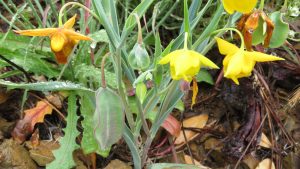
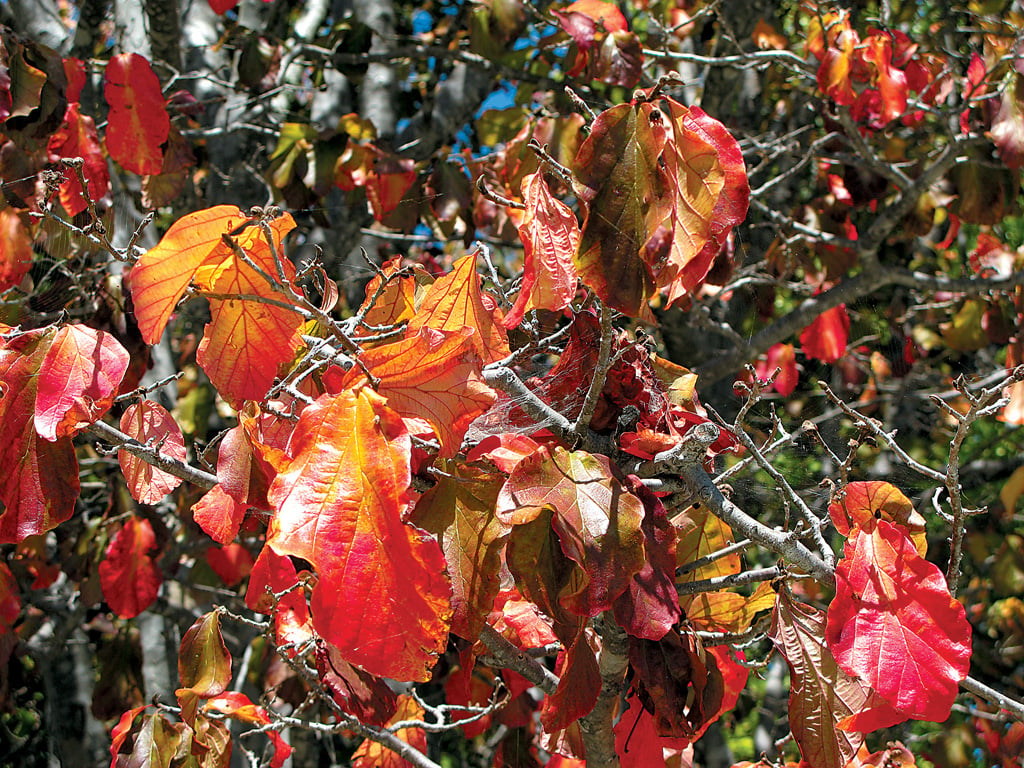
Contributor
- Topics: Archive, Plants You Need
Persian ironwood (Parrotia persica). Author’s photographs
Persian ironwood (Parrotia persica) seems exotic yet familiar, all at the same time. It has bark reminiscent of the more commonly grown Chinese elm (Ulmus parvifolia) and sycamores and plane trees (Platanus species); the luxuriant summer leaves of a beech tree (Fagus species); and a combination of brilliant fall colors evocative of smoke tree (Continus coggygria) and sweetgum (Liquidambar styraciflua). With so many worthy ornamental traits and an adaptability to a range of climate zones, Persian ironwood rewards those who choose to grow it, offering interest and beauty in every season. It should be grown more frequently in Western gardens.
Persian ironwood is a member of the witch hazel family (Hamamelidaceae), which includes familiar woody plants such as the witch hazels (Hamamelis species), the winter hazels (Corylopsis species), Fothergilla, and Chinese witch hazels (Loropetalum); the family once included the sweetgums, until they were split into the Altingiaceae. Only two species comprise the genus Parrotia, the other being P. subaequalis from C...
READ THE WHOLE STORY
Join now to access new headline articles, archives back to 1977, and so much more.
Enjoy this article for FREE:
Articles: Calochortophilia: A Californian’s Love Affair with a Genus by Katherine Renz
If you are already a member, please log in using the form below.
Share:
Social Media
Garden Futurist Podcast
Most Popular
Videos
Topics
Related Posts
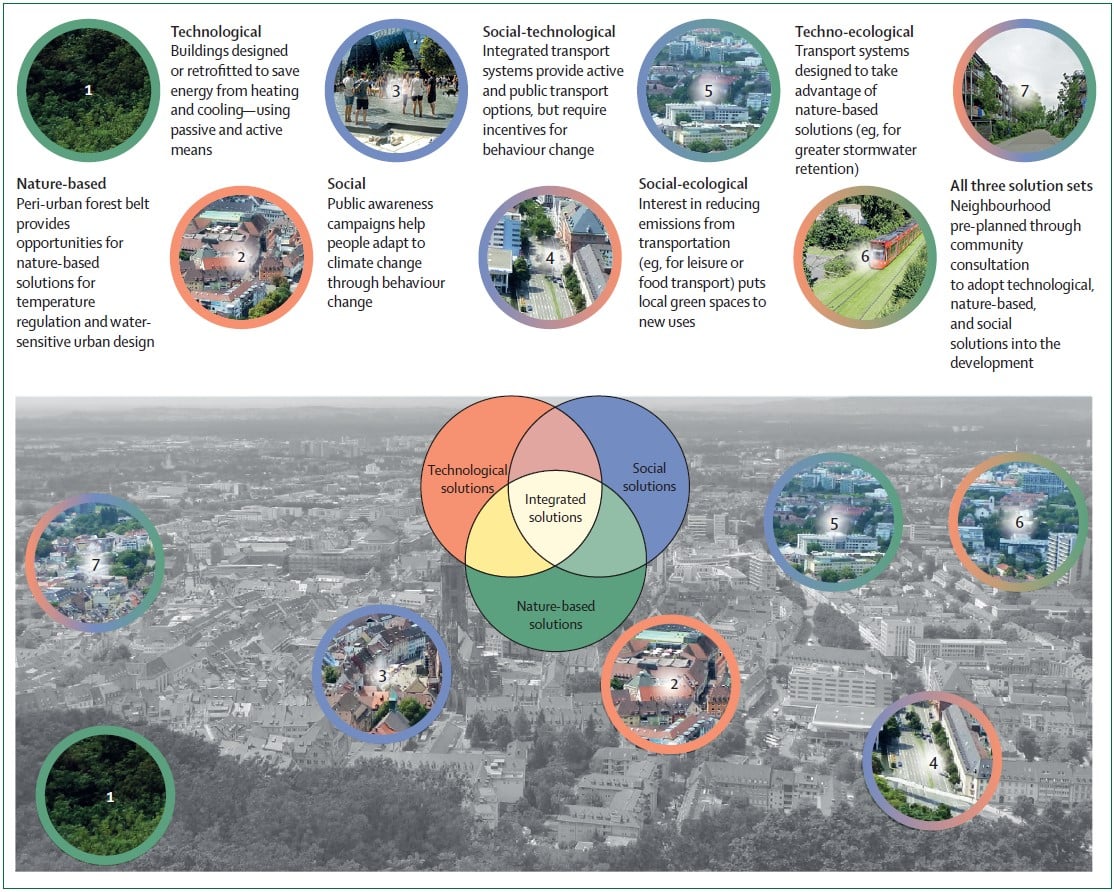
Ground Up Science for Greener Cities with Garden Futurist Dr. Alessandro Ossola
Spring 2023 Listen to the Podcast here. Alessandro Ossola is a scientist who gets very excited about the challenge of climate change allowing for an
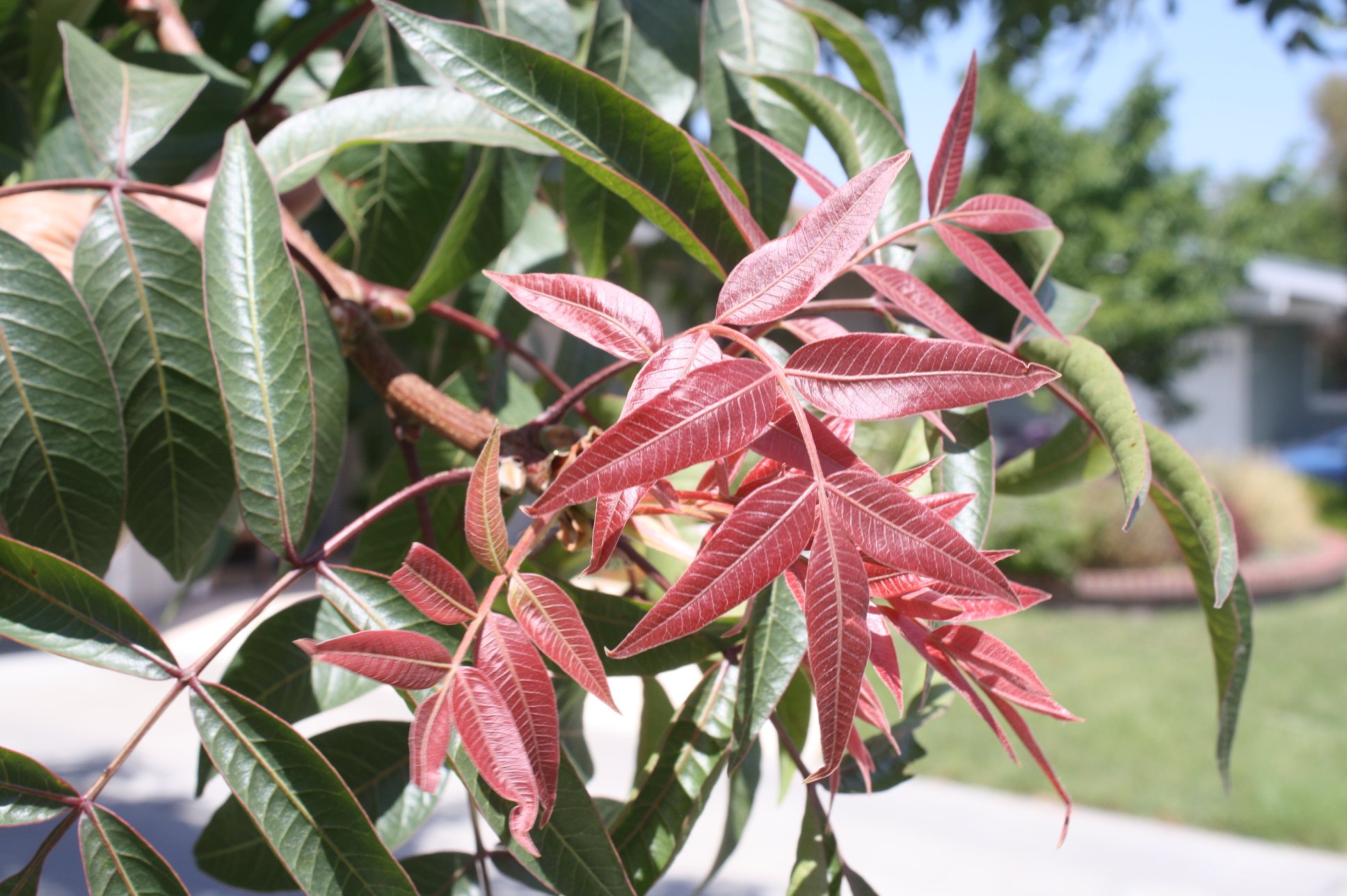
Readying Urban Forests for Climate Realities with Garden Futurist Dr. Greg McPherson
Winter 2023 Listen to the Podcast here. “Going from the mow and blow to a more horticulturally knowledgeable approach to maintaining the landscape. And that

Welcome, Greywater, to the Garden
Summer 2022 Oh, summer: delightful warm air, tomatoes swelling on the vine, fragrant blooms on an evening stroll. When it’s warm and rainless, how is
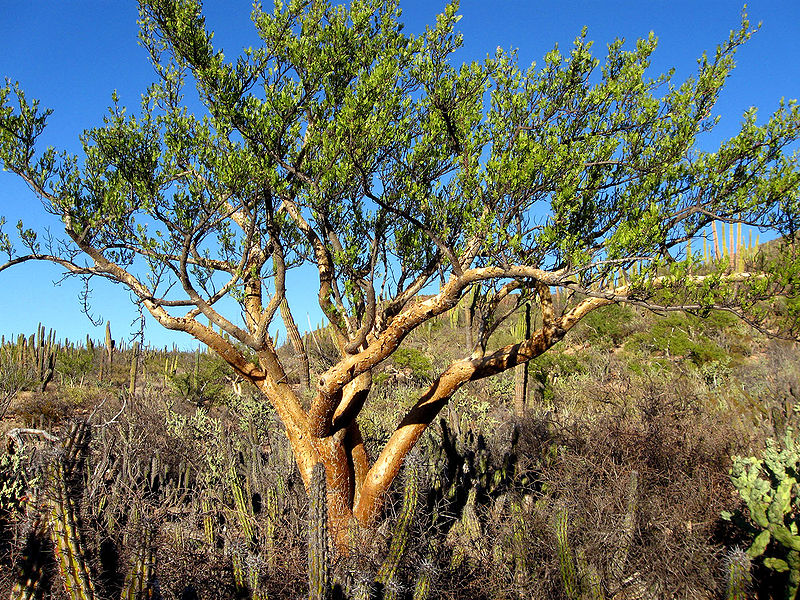
Big Tree-Data and Big-Tree Data with Garden Futurist Matt Ritter
Summer 2022 Listen to the full Garden Futurist: Episode XV podcast here. We are in an environmental crisis right now in many parts of California


